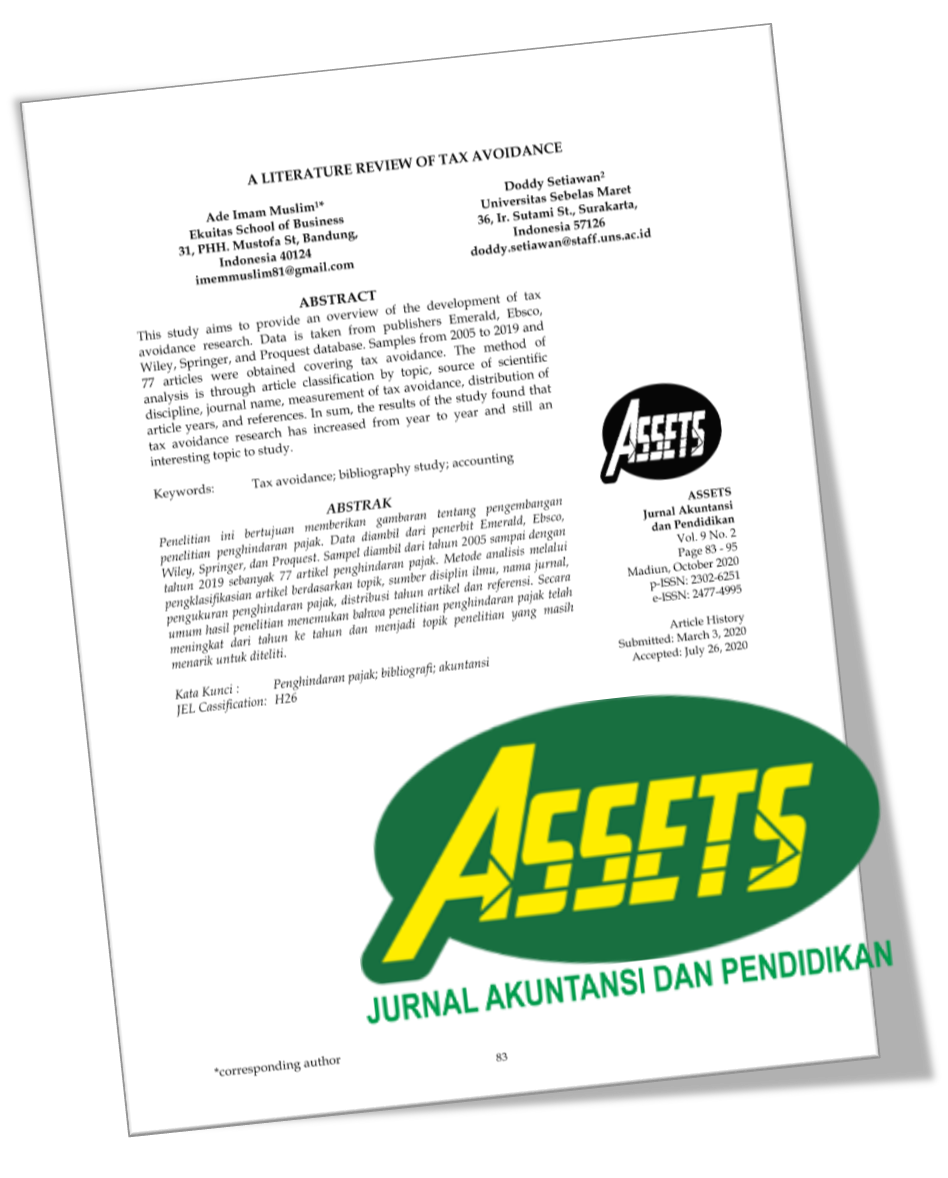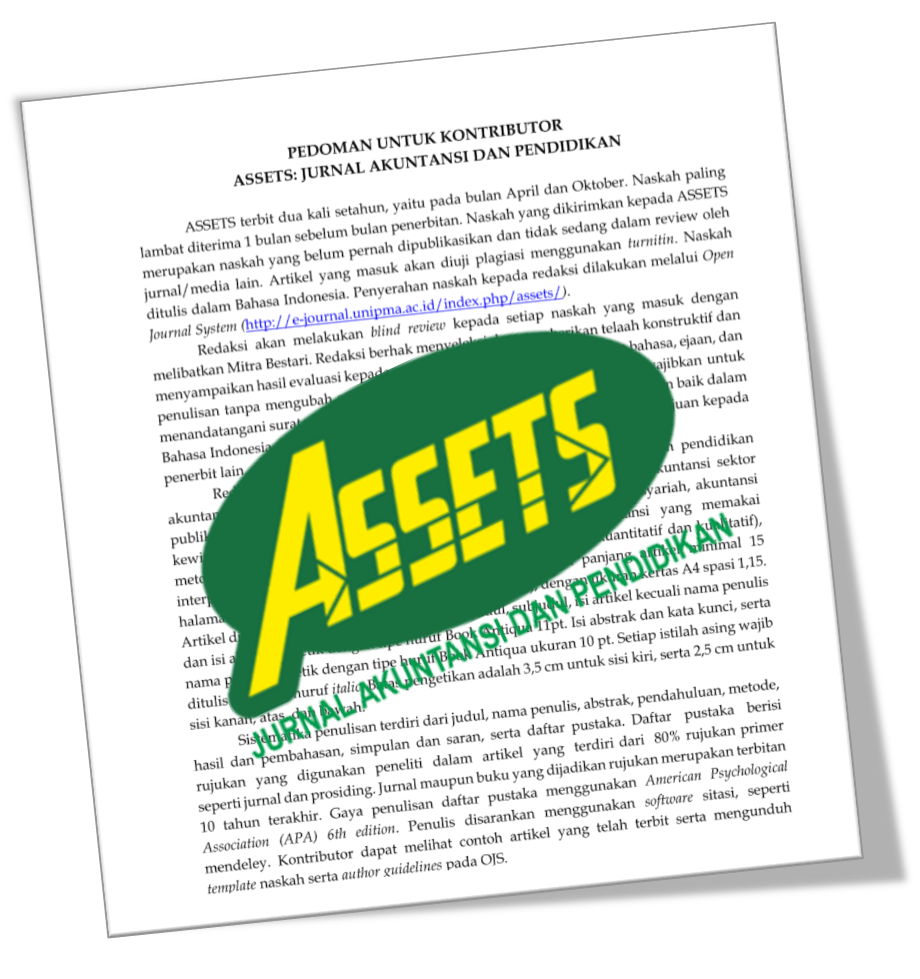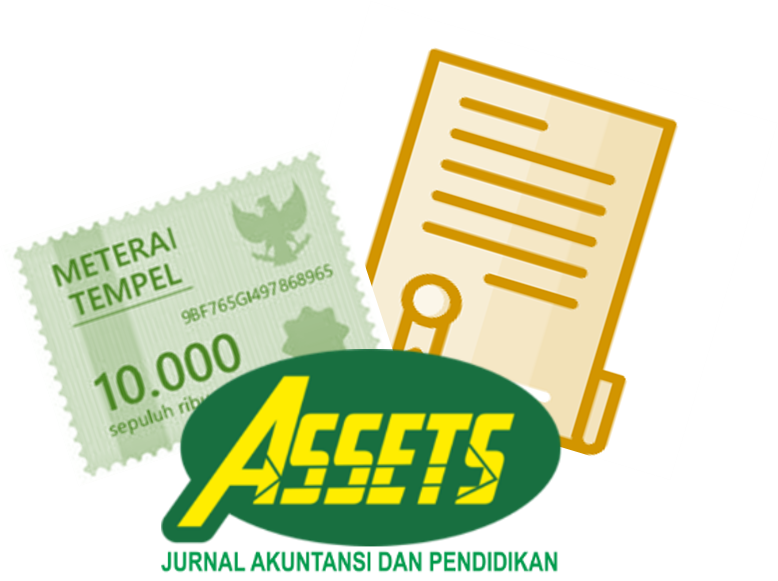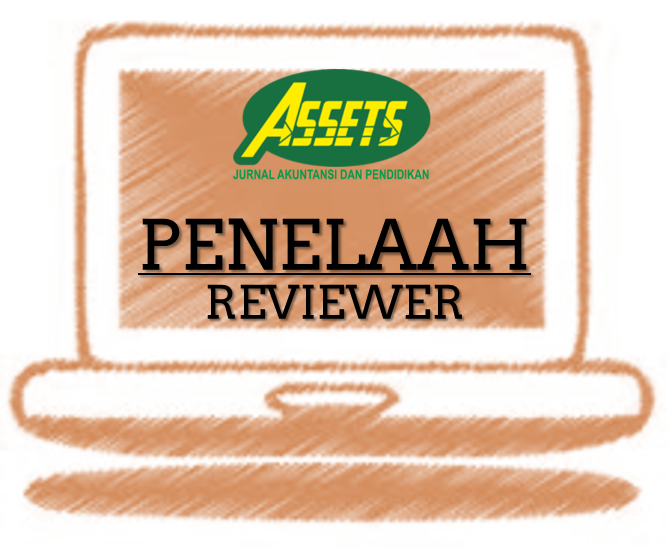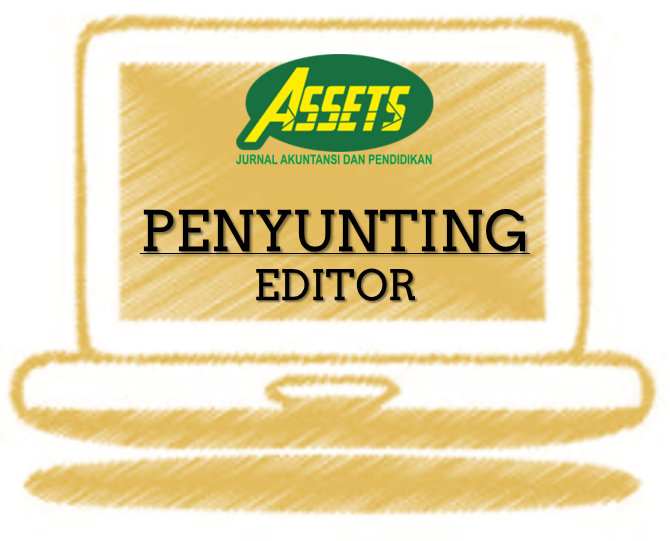EXPERIMENTAL STUDY ON ACCOUNTING STUDENTS: PERSUASION ELABORATION MODEL IN ETHICAL DECISION LEARNING
DOI:
https://doi.org/10.25273/jap.v13i2.19734Keywords:
Fraud disclosure, Elaboration model, Accounting students, Experimental study, Pengungkapan kecurangan, Model elaborasi, Mahasiswa akuntansi, Studi eksperimenAbstract
ABSTRACT
This research aims to test students' understanding of fraud cases using the persuasion elaboration model, namely the influence of argument framing, source credibility, and emotional condition on the decision to reveal fraud. This research method uses a 2x2x2 online laboratory experiment between subjects with 127 accounting students from Universitas Hayam Wuruk Perbanas. The results showed that the argument framing (positive vs. negative) did not make a significant difference. In contrast, source credibility (high vs. low) and emotional condition (good vs. bad) made a significant difference in accounting students' decisions to reveal fraud. This research contributes to behavioral accounting theory developed with communication science in predicting the behavior of prospective accountants.
ABSTRAK
Penelitian ini bertujuan untuk menguji pemahaman mahasiswa atas kasus kecurangan menggunakan model elaborasi persuasi, yaitu pengaruh pembingkaian argumen, kredibilitas sumber, dan kondisi emosi terhadap keputusan mengungkapkan kecurangan. Metode penelitian ini menggunakan eksperimen laboratorium online antar subjek 2x2x2 dengan partisipan sebanyak 127 mahasiswa akuntansi Universitas Hayam Wuruk Perbanas. Hasil penelitian menunjukkan bahwa pembingkaian argumen (positif vs negatif) tidak memberikan perbedaan yang signifikan, sedangkan kredibilitas sumber (tinggi vs. rendah), dan kondisi emosi (baik vs. buruk) memberikan perbedaan yang signifikan dalam keputusan mahasiswa akuntansi mengungkapkan kecurangan. Penelitian ini berkontribusi pada teori akuntansi keperilakuan yang dikembangkan dengan ilmu komunikasi dalam memprediksi perilaku calon akuntan.
Downloads
References
ACFE. (2022). Occupational Fraud 2022: A Report To The Nations. https://legacy.acfe.com/report-to-the-nations/2022/
Akinkugbe, O. D. (2018). Informal networks of corruption: assessing the challenges for public sector whistleblowing in Nigeria. Jindal Global Law Review, 9(1), 11-28. https://doi.org/10.1007/s41020-018-0055-5
Alleyne, P., Charles-Soverall, W., Broome, T., & Pierce, A. (2017). Perceptions, predictors, and consequences of whistleblowing among accounting employees in Barbados. Meditari Accountancy Research, 25(2), 241-267. https://doi.org/10.1108/MEDAR-09-2016-0080
Allison, T. H., Davis, B. C., Webb, J. W., & Short, J. C. (2017). Persuasion in crowdfunding: An elaboration likelihood model of crowdfunding performance. Journal of Business Venturing, 32(6), 707-725. https://doi.org/10.1016/j.jbusvent.2017.09.002
Chen, C. X., Nichol, J., & Zhou, F. H. (2012). The Effect of Financial Incentive Framing and Descriptive Norms on Internal Whistleblowing. SSRN Electronic Journal, 30(November), 1-37. https://doi.org/10.2139/ssrn.2132852
Clements, L. H., & Shawver, T. J. (2015). The Effects of Emotions on the Moral Judgments and Intentions of Accountants. Journal of Forensic & Investigative Accounting, 7(1), 146-179.
Darjoko, F. J., & Nahartyo, E. (2017). Efek Tipe Kecurangan Dan Anonimitas Terhadap Keputusan Investigasi Auditor Internal Atas Tuduhan Whistleblowing. Jurnal Akuntansi Dan Keuangan Indonesia, 14(2), 202-221. https://doi.org/10.21002/jaki.2017.11
Dungan, J. A., Young, L., & Waytz, A. (2019). The power of moral concerns in predicting whistleblowing decisions. Journal of Experimental Social Psychology, 85(September 2018), 1-12. https://doi.org/10.1016/j.jesp.2019.103848
Ebaid, I. E. S. (2023). The courage of whistleblowing of prospective accountants: evidence from Saudi Arabia. Journal of Applied Research in Higher Education, 15(3), 713-730. https://doi.org/10.1108/JARHE-02-2022-0071
Downloads
Published
Issue
Section
License
Copyright (c) 2024 Putri Wulanditya

This work is licensed under a Creative Commons Attribution-ShareAlike 4.0 International License.
Perjanjian Lisensi dan Hak Cipta
Saat mengirimkan naskah ke jurnal, penulis menyatakan bahwa:
- Mereka diberi wewenang oleh rekan penulisnya untuk masuk ke dalam perjanjian ini.
- Karya yang dimaksud belum pernah diterbitkan secara resmi sebelumnya, kecuali dalam bentuk abstrak atau sebagai bagian dari kuliah, resensi, tesis, atau overlay jurnal yang diterbitkan.
- Karya yang dimaksud tidak sedang dipertimbangkan untuk diterbitkan di tempat lain,
- Publikasi karya yang dimaksud telah disetujui oleh semua penulis dan oleh otoritas yang bertanggung jawab - secara tahu sama tahu atau eksplisit - dari lembaga tempat pekerjaan itu dilakukan.
- Mereka mengamankan hak untuk mereproduksi materi apa pun yang telah diterbitkan atau dilindungi hak cipta di tempat lain.
- Mereka menyetujui lisensi dan perjanjian hak cipta berikut.
Hak Cipta
Penulis yang menerbitkan dengan ASSETS: Jurnal Akuntansi dan Pendidikan menyetujui persyaratan berikut:
- Penulis mempertahankan hak cipta dan memberikan jurnal hak publikasi pertama dengan karya yang secara bersamaan dilisensikan di bawah Lisensi Atribusi Creative Commons (CC BY-SA 4.0) yang memungkinkan orang lain untuk berbagi karya dengan pengakuan kepenulisan karya dan publikasi awal di jurnal ini.
- Penulis dapat masuk ke dalam pengaturan kontrak tambahan yang terpisah untuk distribusi non-eksklusif dari versi jurnal yang diterbitkan dari karya tersebut (misalnya, mempostingnya ke repositori institusional atau menerbitkannya dalam sebuah buku), dengan pengakuan publikasi awalnya di jurnal ini.
- Penulis diizinkan dan didorong untuk memposting karya mereka secara daring (misalnya di repositori institusional atau di situs web mereka) sebelum dan selama proses pengiriman, karena dapat menghasilkan pertukaran yang produktif, serta kutipan lebih awal dan lebih besar dari karya yang diterbitkan.
License and Copyright Agreement
In submitting the manuscript to the journal, the authors certify that:
- Their co-authors authorize them to enter into these arrangements.
- The work described has not been formally published before, except as an abstract or part of a published lecture, review, thesis, or overlay journal.
- That it is not under consideration for publication elsewhere,
- That its publication has been approved by all the author(s) and by the responsible authorities – tacitly or explicitly – of the institutes where the work has been carried out.
- They secure the right to reproduce any material already published or copyrighted elsewhere.
- They agree to the following license and copyright agreement.
Copyright
Authors who publish with ASSETS: Jurnal Akuntansi dan Pendidikan agree to the following terms:
- Authors retain copyright and grant the journal right of first publication with the work simultaneously licensed under a Creative Commons Attribution License (CC BY-SA 4.0) that allows others to share the work with an acknowledgment of the work's authorship and initial publication in this journal.
- Authors can enter into separate, additional contractual arrangements for the non-exclusive distribution of the journal's published version of the work (e.g., post it to an institutional repository or publish it in a book), with an acknowledgment of its initial publication in this journal.
- Authors are permitted and encouraged to post their work online (e.g., in institutional repositories or on their website) before and during submission, as it can lead to productive exchanges and earlier and more extraordinary citations of published work.

ASSETS: Jurnal Akuntansi dan Pendidikan is licensed under a Creative Commons Attribution-ShareAlike 4.0 International License.


